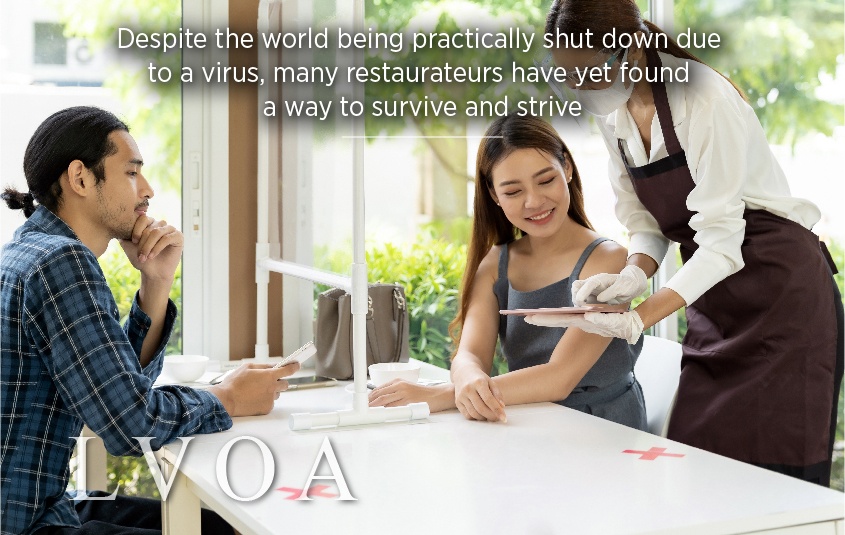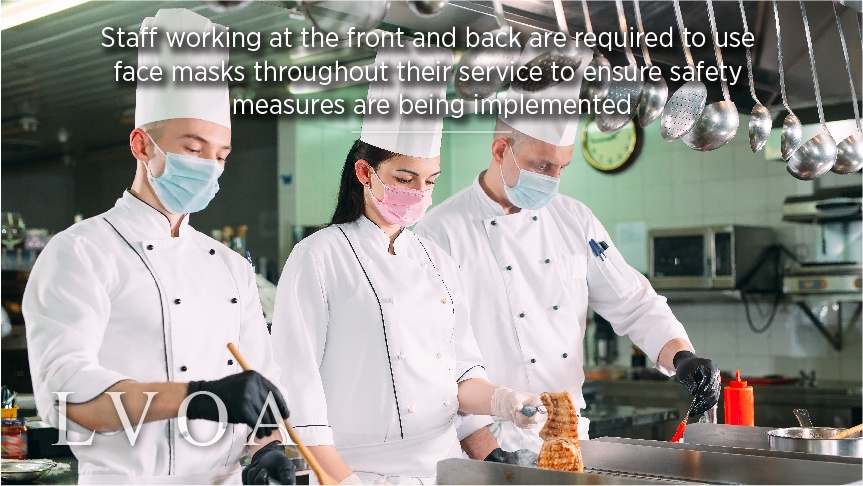The lockdown due to COVID19 took a toll on many things during 2020 and very quickly the world came to realize how fond, if not dependent we are on eating out. Humans after all are by nature social animals, and sharing a meal is an important part of that. As business owners, restaurateurs definitely felt the pinch when the government gave orders to shut down all nonessential services.
This forced the comeback to be that much more well planned and strategized.
As the number of cases reduced, the Bangkok government loosened the rules and allowed restaurants to start operating again with necessary precautionary measures to ensure the safety of the consumers as well as the establishments’ staff. Restaurants opened up to the public in May, while bars did the same at the end of July. Since the beginning of 2020, many Asian countries went through lockdown periods to some extent. F&B operators in the metropolis saw a positive increase in reservations from May onward, although in July the government. imposed a short-lived ban on dining in before lifting it again shortly after. And more recently they repeated the short ban in January 2021.
Reports of higher average checks than usual have been referred to as ‘revenge spending’ once local restrictions were lifted; mainly because those with disposable income had not been able to spend it plus the sense of celebration that went hand in hand with the revival of socializing in public over a meal together with their loved ones.
Thailand hosted close to 40 million visitors in 2019, tourist arrivals dropped below half of that during 2020 with expected slow growth for 2021. Hoteliers and restaurateurs insist that tourists can still expect the exotic and culture-filled experience when they visit Thailand despite changes in the norm that COVID19 has brought. Here are some of the adjustments implemented in Bangkok’s F&B Industry.
Masks for all
All diners are required to wear their mask when entering the restaurant. Staff are expected to use them at all times, no exceptions. This seems to be the new norm regardless of its inconvenience, restaurateurs are committed to following the protocol in order to ensure no action is taken against their reopening.
Temperature check & QR scans
Before being allowed to enter the restaurant, all customers are submitted to a temperature check upon entering. Restaurateurs have the authority to deny admittance to those with temperature that exceeds the maximum reading (temperature >37.5). Often a sanitizer is offered to cleanse hands upon entry. Customers are also requested to scan the QR Code linked to the ThaiChana website displayed at every restaurant, on entering and departing the premises. This compulsory tracing system has aided the government tremendously with controlling the spread of COVID19.
Social distancing
The term social distancing has been chanted widely ever since the outbreak of this most recent virus. Restaurants have had to implement social distancing measures as it is mandatory by law and after all, one can never be too safe during a pandemic. Most commonly every other table at restaurants is marked so as not to be available for seating. Others mark every alternate seat as blocked. Some restaurants have gone as far as installing clear acrylic screens between tables, although this measure has proven to be rather unpopular with diners as it affects the ambience of the environment and psychologically puts the joy of the experience in a negative light.
Operating standards

In general all operating standards have been analyzed and adjusted where necessary. As an example, many restaurants do not have the usual table setting any longer that includes salt and pepper shakers or grinders. Instead, these are kept at the service stations and are served out on request only, to minimize physical contact with items that are shared among the patrons. Likewise in a Japanese restaurant for instance, the usual presence of a soy sauce dispenser on the table is past tense. Instead it is brought to the diner once the order has been taken and the condiment is required to accompany the dish that has been ordered. And some restaurants now have tissues as part of their regular table setting, in order for patrons to have immediate access in case of a cough or a sneeze that may come along.
Lastly, in a way the pandemic has created a situation where we have had to push the reset button when it comes to dining out. People are more careful and aware of the importance of hygiene. A win for humanity in this case can be considered, proving that through determination and perseverance it has shown the ability to adapt and overcome the challenges presented. Despite the world being practically shut down due to a virus, many restaurateurs have yet found a way to survive and to strive to a degree. It might not be an ideal situation compared to how things were earlier, nonetheless, it’s too soon to say it is not a change for the better.







